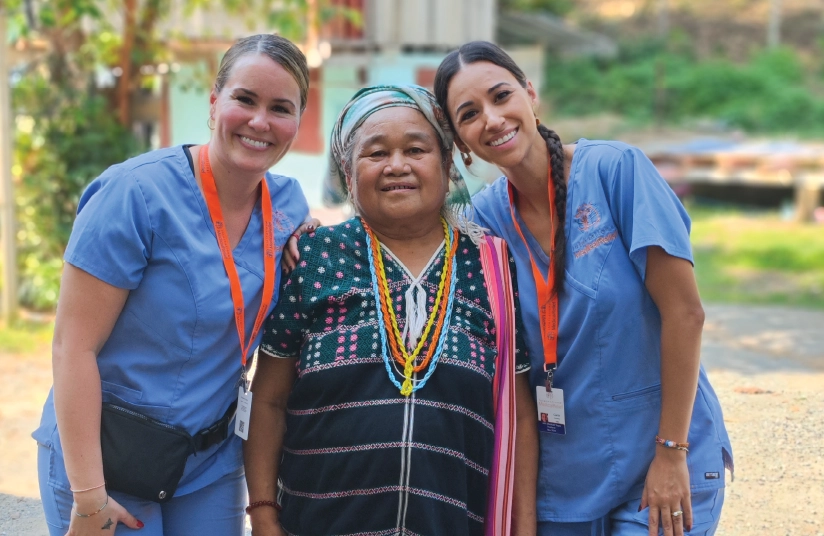
Medical missions can be a great way for healthcare providers to experience new cultures and communities while sharing their skills with people who need care. Below are some medical mission tips from providers who have set out on missions themselves. If you’re interested, read about setting yourself on that path and getting the most out of your medical mission.
1. Find a trusted medical mission organization
Getting ready for a medical mission starts with two things: doing your research and finding an organization you trust to help you. Family medicine practitioner Dr. Mark Peterson, who has served medical missions in New Zealand, India, Cameroon, Guinea, Honduras, Kenya, Ecuador, and even Antarctica, says finding a medical mission run with intention is essential. While he had great experiences with an NGO called Mercy Ships, he says other NGOs sometimes throw medical care on as a last-minute feature alongside school and home construction projects. “I’ve done a trip or two with that and those don’t do very well.”
General surgeon Dr. William Barrett works both locum tenens and travels on medical missions to places like Madagascar, Benin, Guinea, and Liberia, collaborating with Mercy Ships for some of his travels. His advice? Find that trusted source of help. “If you’re going to do it, I strongly suggest that you pick one company and that you pick one agent and that you get kind of based with them because things are going to get complicated, and if you try to juggle, it can often go bad.”
Karla Prentiss, vice president of Sustainable Education and Development at International Medical Relief, agrees. “Providers are very busy, so sometimes they find themselves signing up for a medical mission, and before they know it, it’s a week away, and they feel under-prepared.” That’s where working with a staffing agency can help connect physicians to the resources they need to prepare.
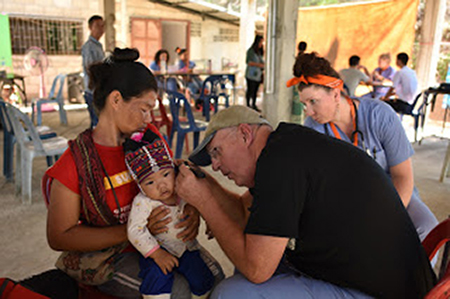
2. Manage your expectations from the start
It can be tempting to daydream about what challenges you might encounter on a trip abroad and how you’d rise to them. But it’s important to reel in those expectations early on. “Some physicians get in their head about the complexity of the cases they expect they might see, and when they get into the field and realize it’s typically basic acute primary care, they may come away feeling disappointed,” says Prentiss. “Overthinking it and losing that sense of adventure can get one so far into the weeds that they can’t partake in the glorious beauty of humanity presented to them.”
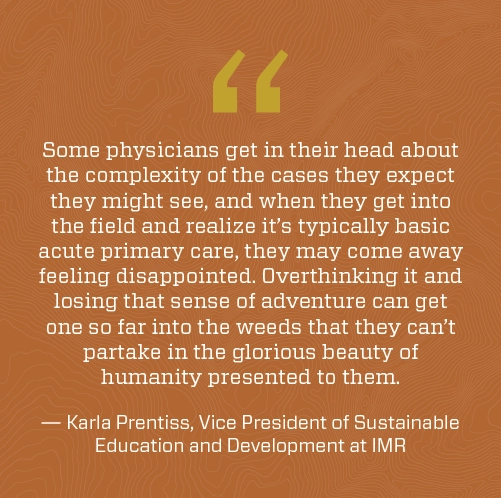
Many doctors find that in a medical mission, especially in third-world countries, they are there to help meet many basic patient care needs, as they’d see in family practice at home. Complex cases and diagnoses are less the norm than doing physical checkups on people who may have never had a basic check-up.
3. Commit to a learning curve
Doctors who have served on these kinds of missions have plenty of advice to give about how to adjust. OB-GYN Dr. Brent Wright, who has traveled to missions in the Amazon, the Dominican Republic, Kenya, Malawi, and Thailand, points out one of the key differences doctors should prepare for: “It’s back to basics, delivering basic care for people without all the other computerized medical records.”
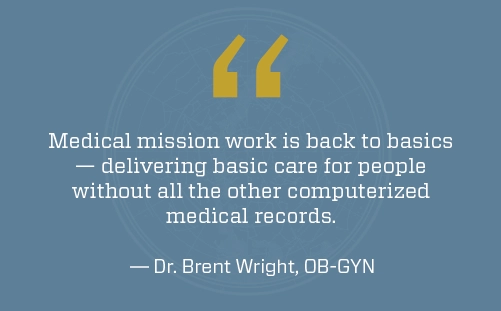
Dr. Peterson offers some of the most helpful reality-check advice, though. “You’re going to find that how you’ve done it is not necessarily the only way. There are many ways to do things, and one of the toughest things is to realize you have to understand the local problems and what’s endemic to the area.”
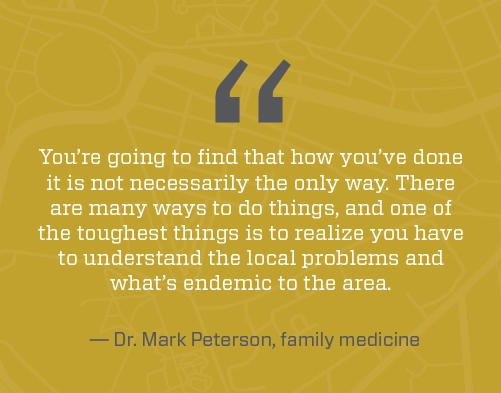
That can mean rethinking how you diagnose something as simple as stomach pain. “I’ve gone on missions where you bring a lot of U.S. docs into the developing world — one of the most common problems we see is people come in with this burning stomach pain, and the doctors treat everything like it’s acid reflux. They can’t do anything else. They haven’t realized that statistically, about two-thirds of those are either worms or Giardia.”
4. Immerse yourself in your surroundings
Connecting to the culture around you is vital for a meaningful medical mission, which means engaging with the people. “When providers feel connected to the culture or a specific patient, their engagement and enjoyment of the experience are much higher,” explains Prentiss.
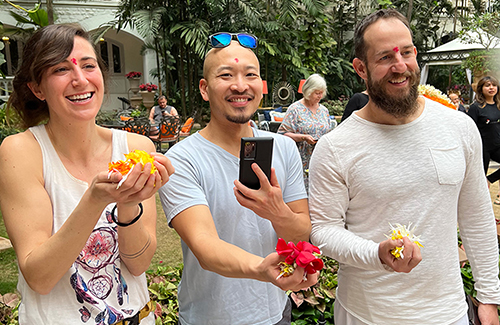
Dr. Smith, who has traveled to New Zealand and Thailand, says, “Eat with the local people if you can, talk to the local people if you can.” Finding ways to integrate yourself into the daily life of the place in which you’re serving gives you more insight into how to best care for the people there.
When pediatrician Dr. Carrie Frost spent time in India, she spent time with patients in their family homes, helping with chores, preparing Thai dishes, visiting temples, riding on camels, going to markets, and learning to do crafts and dances with the locals.
Prepare for success: How to have an enriching medical mission experience
5. Celebrate every victory, no matter how small
Wins on the medical mission may not always look like solving a medical mystery. It can also look like locals you get to know personally or bonding with fellow providers. “We were living with all of the staff with whom we worked side by side, and so we really got to know them on a different level,” Dr. Frost says of her time in India. “We shared meals, played cards, and laughed with providers and staff from the States and India, which I hadn’t experienced on that level. I think it developed a closeness, friendships, and bonds that wouldn’t have happened otherwise.”
“Every night on our missions, we debrief and talk about who we interacted with that day. A lot of the moments we talk about are not about the care or the visit but about developing enduring friendships with their patients and their team,” says Prentiss. “You may be partnered with a medical or dental student and share advice that will change their life. Leave your baggage at home, and come with a sense of adventure, knowing you will impact someone’s life during the mission.”
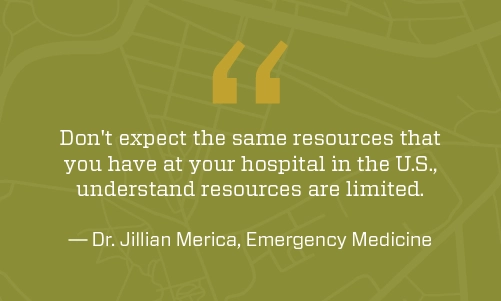
Dr. Jillian Merica, an emergency medicine physician who went on a medical mission in Thailand, advises, “Don’t expect the same resources that you have at your hospital in the U.S., understand resources are limited. Understand that there may be a lot of unforeseen delays, and always be patient, work with your local staff/support, and always be respectful. You are there to help, not complain or add to frustration. Always have a plan B — and plan C, D, E — do your best to help patients as you can. This is NOT a vacation. There are some added perks of seeing new parts of the world and experiencing new cultures, but you must go with a heart for service, not for leisure. If you want a vacation, take one, but don’t expect a medical volunteer trip to be a vacation.”
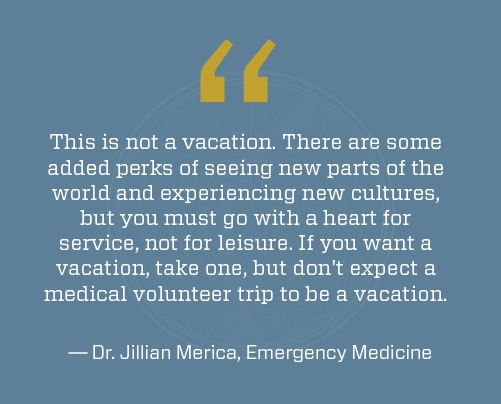
6. Understand and embrace the local culture
Even with translators and local support staff, it can be very difficult to give medical care in a different culture, especially one that you are not very familiar with. Understand that people in other cultures have different priorities, thought processes, and traditions that affect the way they receive and implement medical care. Do your best to use your local guides/translators to help you understand this aspect of your patient’s perspectives. This should help guide the care and recommendations you give.
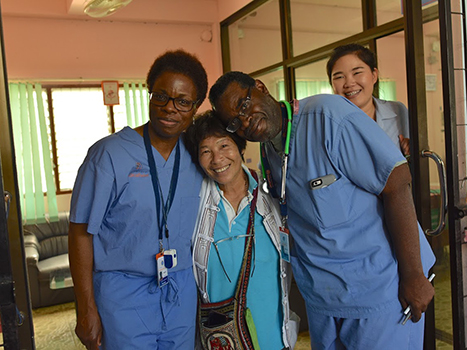
“For example, in the mountain region near Chiang Mai, Thailand, many patients have severe gastritis/peptic ulcer disease,” explains Dr. Merica. “When evaluating one patient, I told him he needed to stop eating spicy foods. My translator laughed. When I asked why he laughed, he said that chilis are a large part of the food culture and cutting out spicy food is not a reasonable request, but reducing spice would be better. After that, I started asking patients how many chilis they were adding to their food and recommended cutting that number in half.”
Read the story of a medical mission veteran: One doctor’s medical mission experience in India
Make a global impact with your skills
Are you eager to use your skills to create a global impact? There are numerous medical mission opportunities waiting for you. Whether it’s offering hands-on care or utilizing telemedicine, your expertise can make a significant difference in underserved communities around the world.
Global Medical Staffing specializes in helping physicians have the adventure of a lifetime. Give us a call at 855.958.2241 to learn more, or view today’s locum tenens job opportunities.
Interested in making a difference through a medical mission? The Making a Difference Foundation partners with world-class nonprofits to provide physicians the opportunity to participate in meaningful medical missions to make a difference around the globe.



 Back
Back